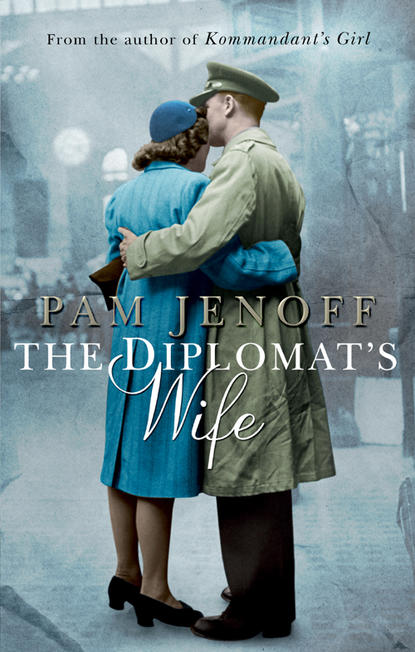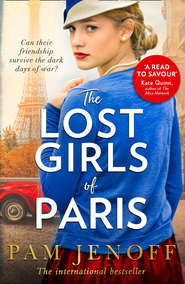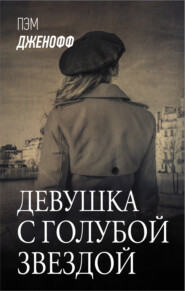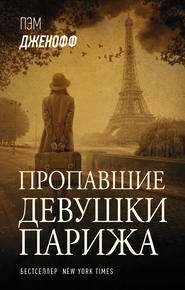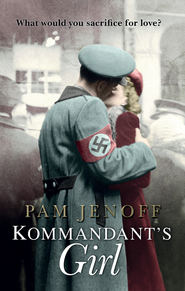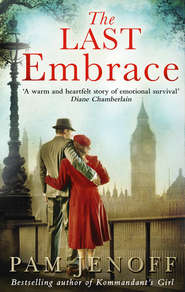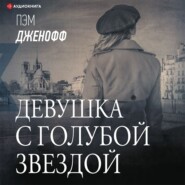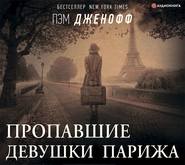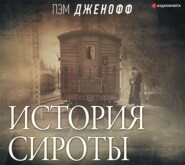По всем вопросам обращайтесь на: info@litportal.ru
(©) 2003-2025.
✖
The Diplomat's Wife
Настройки чтения
Размер шрифта
Высота строк
Поля
“My wife is quite good at reading palms,” Henryk says. “She wants to know if she can look at yours.”
I hesitate. Growing up in Poland, I had heard of gypsies from the Roma community who could tell the future from the lines of the palm, but I have never met anyone who claimed she could actually do it. I shrug.
Henryk nods to his wife. She turns my hand over, cradling it in hers. Then she raises it to the light, running her thumb over my palm several times, and speaking to Henryk, who translates. “You have suffered through hard times.” That is hardly a prediction, I think. Everyone suffered during the war. “But your life line is strong, and your heart line is very deep. You will have great love …?” As he says this, Henryk looks meaningfully at Paul, who has come up behind me. I shiver. “And that love,” Henryk prompts, but Marie stops, placing her hand on Henryk’s arm to silence him. A troubled look crosses her face. She runs her hand over my palm twice, as if wiping something away. Then she drops my hand as if it is hot and looks up, shaking her head.
“What is it?” I ask.
“Nothing,” Henryk replies quickly, but I can tell from his tone and his wife’s expression that there is more. “I should get back to the other guests.”
“Of course,” Paul replies, shaking Henryk’s hand as Marie turns back to the piano. We make our way to the front of the restaurant and onto the street. It is getting dark now and the gaslights have come on, casting a yellow glow on the pavement. “They’re lovely people, but palm reading is a silly game.”
“Perhaps,” I reply slowly, still troubled by Marie’s refusal to say all that she had seen.
“Are you tired?” Paul asks. I shake my head quickly, not wanting my night with Paul to end. “Good. Why don’t we walk?” He leads me away from the restaurant along a winding street. The buildings here are narrow, seeming to lean on one another. Voices and laughter spill out from the cafés and bars onto the street. Paul points at the window of an apartment on the third floor of one of the buildings, illuminated in yellow light. A young woman sits on a bed reading to three small children clustered around her. “Can you imagine growing up here?”
I do not answer. In my mind, I imagine this street during the occupation. What had those children been through? I think then of the children in the ghetto orphanage where my mother and Emma had worked. What had become of them? I wonder, my stomach aching at the memory.
We walk in comfortable silence. Soon the street ends at the river. “Look.” Paul points to an island where an enormous cathedral sits, its turrets and buttresses bathed in light. “Notre Dame.” I stop, staring up at the massive structure. The church that seemed so massive when I sought shelter the previous night is dwarfed by comparison. “You know, they call Paris the City of Lights,” Paul offers.
I continue to gaze at Notre Dame as Paul leads me left along a path that runs parallel to the Seine. Soon we reach a wide stone bridge that crosses the river. “Careful,” he says, taking me by the arm to guide me onto the pedestrian sidewalk, away from the cars that race on and off of the bridge. A jolt of electricity runs through me. Would I ever be able not to shiver at his touch? “This is the Pont Neuf, the oldest bridge in Paris.” He whistles softly under his breath as we make our way across the bridge. When we reach the midpoint, he stops, pointing at the skyline in the opposite direction from Notre Dame. “Look.”
In the distance, I can see the Eiffel Tower, climbing toward the sky. I lean against the wall of the bridge, staring. “This city … I mean, I couldn’t have imagined …”
“It kind of defies words,” Paul agrees, moving so that he is standing close behind me. “Hard to believe just a few months ago it was still occupied by the Germans.” He puts his arms around me from behind and I can feel his warmth, his heart beating against my back. Other than our brief embrace in the bar, we have not been this close since Salzburg. My desire swells and breaks wide open.
Suddenly, there is shouting on the street behind us, followed by a series of small explosions. We turn toward the commotion. “What on earth …?” Paul steps forward, putting me behind him protectively. His hand drops to the gun holstered at his waist. There is more shouting, followed by someone singing. On the bridge, traffic has stopped. Car horns begin to blare.
“Sounds like a celebration of some sort,” I suggest.
Paul does not answer but takes my hand and leads me across the bridge to the street, where a small crowd has gathered, shouting and cheering. Some people are drinking directly from bottles, others dancing alone or in pairs. The gathering swells as dozens more revelers come running from all directions. Paul grabs an American soldier by the sleeve as he runs past us. “What’s going on?”
“The Japs have surrendered. The war is over!” The soldier lets out a whoop, then continues running to join the crowd.
Paul turns to me and we stare at each other, too stunned to speak. “The war is over,” he repeats at last. He bends down and picks me up. “The war is over!” He spins me around, faster and faster, until the city is just a blur of lights. Then he sets me down, his arms still around me. We look at each other breathlessly for several seconds. Suddenly he brings his lips to mine, and without hesitation I am kissing him back, my mouth open, body pressed tight to his. It is as if we will never stop, as if the street and the people and the world around us no longer exist.
There are more explosions, breaking us apart. “I’m sorry,” Paul says quickly.
“Don’t be. I’m not.” I take a step back, smoothing my skirt. “Look.” I point across the water. Bright flashes of light, red and blue, fill the night sky.
“Fireworks,” Paul remarks. I nod, staring in wonder at the waves of color that fill the sky like confetti. I have heard of fireworks but never seen them before. “You would think after all of the bombings, everyone would have had enough of things exploding,” he says a minute later. “Let’s get out of here.” For a second I hope we will return to the bridge and gaze at the skyline once more. But he leads me through the streets back, I can tell, toward the Servicemen’s Hotel. The war is over, I think, as we walk in silence. I was thirteen years old when the war began and I spent the past six years running for my life.
“What are you thinking?” Paul asks.
“Lots of things. Mostly about what I lost during the war.”
He smiles. “Careful, you’re starting to sound like me.”
Recalling how I had chastised him for self-pity the night on the lake, I laugh. “I suppose I am. I really was preachy, wasn’t I?”
“Not at all. You were right about being grateful to be alive, earning the chance we’ve been given. And now, with the war ending, getting to go home. It really is a second chance, isn’t it?”
Home. Paul will be leaving, returning to America for good. He stops walking and turns to me suddenly, his expression troubled. “The only bad thing is leaving you.” My heart pounds against my chest. “I mean, I realize we haven’t known each other very long, but … I’m going to miss you, Marta.”
So don’t go, I want to scream. “I’ll miss you, too.”
We stand staring at each other for several seconds, neither speaking. “Well, it’s getting late,” he says at last. “We should get back and pick up your papers.” We continue walking and, a few minutes later, approach the Servicemen’s Hotel.
Through the closed hotel door, I hear shouting and singing, soldiers celebrating the end of the war. “Why don’t you wait here?” Paul suggests. “Once I get your papers from Mickey, I can escort you back to your hotel.”
My hotel, I think, panicking. In my excitement at seeing Paul, I had nearly forgotten that I was supposed to get to the Red Cross shelter. “That won’t be necessary …” I begin, but Paul is already through the hotel door.
A minute later, he reappears. “All set,” he says. There is a new number scrawled across the front of the train ticket. “Front desk called the station and reserved you a seat on the seven-fifteen train to Calais. It’s a bit early, I’m afraid, but the only way you’ll make the ferry.”
“Thank you again.” I tuck them into my bag as he leads me down the path to the curb, hailing a taxi.
“Paul, my hotel is clear across town,” I say as the taxi pulls up. “There’s no need for you to ride all the way there.”
He opens the rear door. “But the city is crazy right now with all of the celebrating. I’m glad to escort you.”
“I know. But I’d rather you don’t. Please.” It begins to rain then, thick drops splattering on the pavement.
“I don’t understand …”
“If I don’t say goodbye to you now …” I hesitate, looking down the street, then back at Paul again. I take a deep breath. “If I don’t say goodbye to you now, it is going to break my heart.” I reach up and kiss him, quick and hard. Then, before he can respond, I leap into the back of the taxi and close the door. “Drive, please,” I manage to say in French.
“Where to?”
“Away,” I reply. Paul is still standing outside the cab. Desperately, I come up with the only place in Paris I remember. “To the Louvre.” I have no idea what a taxi costs, how far away the Louvre may be. I will stop the taxi and get out, I decide, as soon as I am away from here.
“But the Louvre is closed….”
“Just drive, please!” The cab lurches forward. Don’t look back, I think. As we start to move, tears well up, overrunning my eyes. Suddenly there is a banging on the roof of the cab, as though someone has dropped a large rock on it. I jump. “Mon dieu!” the driver exclaims, slamming on the breaks. There is another banging noise. It’s not coming from the roof, I realize, but the back window. I spin around. Perched on the trunk of the taxi on all fours, is Paul.
He jumps down, then comes around to the side of the taxi. I roll down the window. The rain falls heavily now, plastering Paul’s hair to his forehead, but he does not seem to notice. “What on earth are you doing?” I demand. “Jumping onto a moving car like that, you could have been killed!”
“I needed to stop you,” he replies simply, opening the taxi door.
“Why? What’s wrong? Did you forget to give me some of the papers?”
He does not answer, but falls to the ground. “Oh!” I reach down. “Are you hurt?”
Paul does not answer but looks up, still kneeling. He hasn’t fallen, but has dropped down on one knee deliberately, as though tying his shoelace. He reaches up and takes my hand. “Marry me, Marta.”
CHAPTER 9
I stare down at him, stunned. “Marta, when I had to leave you in Salzburg, I felt so helpless. I mean, I knew I liked you a lot, but we had practically just met. I thought I would never see you again and there wasn’t anything I could do about it.” His words come out in a tumble, almost too quick for me to follow. “And now, well …” He falters. “I know it’s crazy. We haven’t spent more than a day together. You barely know me. But there’s some reason we seem to keep finding each other. I’m crazy about you. I feel like we’ve known each other forever. And I’m not going to let you go this time. Not when I can do something about it. Marry me, Marta,” he repeats.
Is this really happening? I close my eyes, then open them again. Paul is still on one knee, gazing up at me expectantly. My mind races. Why is he doing this? For a second I wonder if he is still grieving over the loss of his fiancée, trying to fill a void. But looking down at his face, the intensity burning bright in his eyes, I know that his feelings for me are real. This is crazy. Paul is right, though. There is something special between us, something that makes it seem as though we have known each other forever. Suddenly I remember my first night at the palace, staring out at the mountains and wondering what life had in store for me. Now, at least in part, I know the answer. “Yes,” I whisper. My eyes start to burn.





